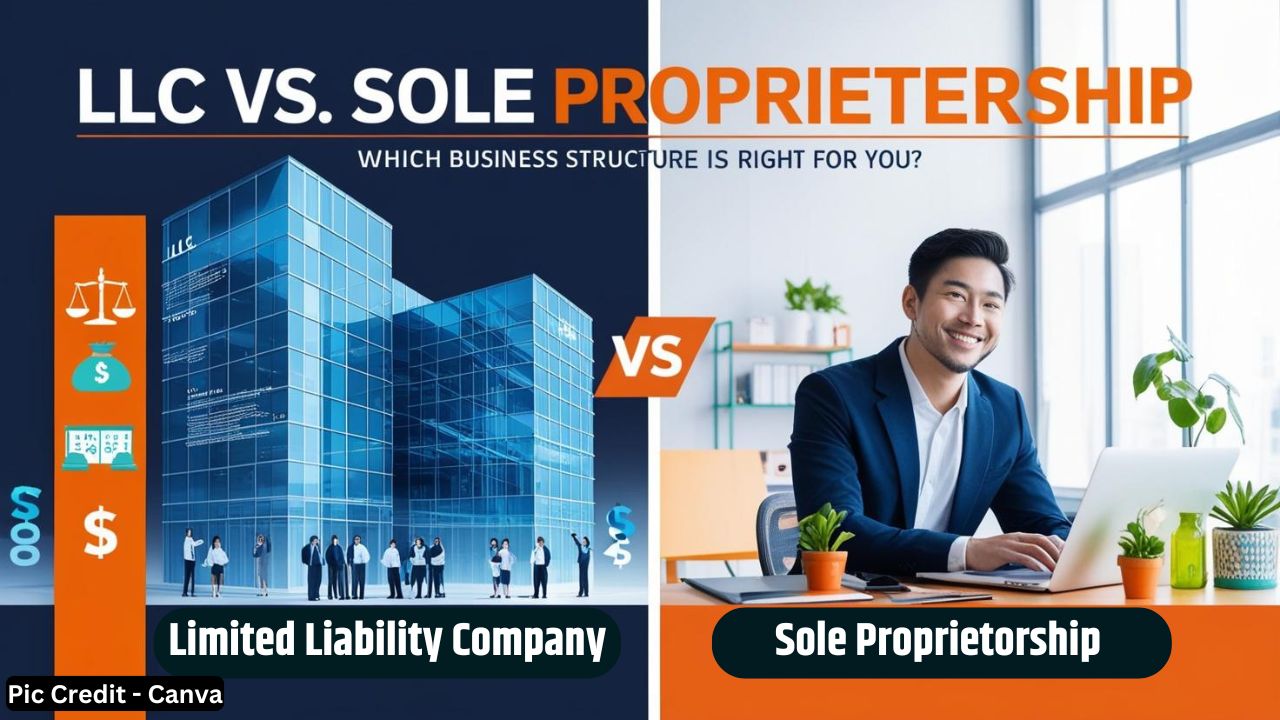LLC Formation in 2025 : A person who wants to start a business in the U.S. must follow seven steps to establish an LLC structure. The advantages of establishing an LLC include liability protection together with tax flexibility as well as other important benefits. This guide provides a seven-step explanation of how to establish an LLC organization for people planning to do so.
What Is an LLC?
An LLC (Limited Liability Company) serves as a business structure which safeguards personal resources from the responsibilities of the company establishment. A business structure of LLC keeps your personal property safe from business debts so your home and car will stay out of reach from business liabilities.
LLC businesses provide members with multiple taxation choices based on their preferences. The business owner can select taxation as a sole proprietorship partnership or corporation to fit their needs. You should speak with a tax advisor so they can decide the most advantageous tax structure for your LLC.

How to Start an LLC in 7 Simple Steps
1. Choose a Business Name
A company name plays a vital role in branding yet needs to adhere to state regulations.
Your business requirement demands a distinctive name that missing from other existing registered entities in your state.
The name needs to include either “LLC” or “Limited Liability Company” as part of its identifier.
A few specific words such as “Bank” along with “Insurance” might have usage limitations.
Your state maintains a website as part of the Secretary of State office which serves to check name availability for business operations.
Read More : Beyond Ordinary: 10 Hidden Luxury Destinations for Exclusive Travelers
2. Appoint a Registered Agent
As a representative of your LLC you must receive all official legal documents at your registered agent position.
For this role an agent should have reached the age of 18 and maintain an official state address.
Selecting yourself as the registered agent will reveal your personal information to the public domain.
Most companies choose to work with registered agent services both for protecting their privacy and to enhance their operational convenience.

3. Obtain Your State’s LLC Articles of Organization Form
A legal establishment of your LLC requires filling the Articles of Organization (which is known as Certificate of Formation in certain states).
Every state provides its distinct Articles of Organization form which you can locate on the business registration page of your state.
4. Fill Out and File the Articles of Organization
When completing the Articles of Organization, you will need to provide:
- Business name
- Business address
- Purpose of the business
- Registered agent’s information
- Management structure (member-managed or manager-managed)
- Duration of the LLC (optional)
Some states, like New York and Nebraska, require you to publish a notice in a newspaper before filing.
Read More : Term Insurance vs Life Insurance: Key Differences Revealed In 2025!
5. Submit the Articles of Organization and Pay the Fee
- Before submitting your LLC formation documents:
- Double-check all the details for accuracy.
- Pay the filing fee, which varies by state ($40 to $500).
- Once approved, you will receive a Certificate of Formation, which you can use to open a business bank account and get a tax ID.
6. Create an Operating Agreement
An Operating Agreement is an internal document outlining:
- Ownership structure
- Profit and loss distribution
- Responsibilities of each member
- Rules for adding/removing members
Always remember this that, Not all states require an Operating Agreement, but having one helps prevent disputes and ensures smooth operations.
7. Keep Your LLC Active
The maintenance of LLC good standing requires two essential activities:
- Filing the annual report along with payment of renewal fees.
- Any state requiring an Annual Report demands its completion from your LLC.
- Paying renewal fees
- Updating business licenses and permits
All forms of business and personal funds should remain differentiated from one another

Additional Steps to Consider
Read More : Omnisend vs Mailchimp: Which Email Marketing Platform is Best for eCommerce?
Obtain Business Licenses and Permits
Business entities need industry-specific licenses together with permits from their state of operation. The licensing office in your state maintains the specifications regarding requirements.
Get an Employer Identification Number (EIN)
An EIN (Employee Identification Number) is required for;
- Opening a business bank account
- Hiring employees
- Filing business taxes
Note : You can obtain an EIN for free from the IRS website.
Separate Business and Personal Assets
Opening a professional business bank account along with limited business transactions within it will protect your personal financial assets.
Register in Other States (Foreign LLCs)
If you want to expand your business to other states, you must register as a foreign LLC and appoint a registered agent in that state.
Why Choose an LLC?
Starting an LLC provides multiple attractive benefits :
- Liability Protection – Protects your personal assets from business debts.
- Flexible Taxation – An LLC offers taxpayers the option to designate their tax status as either sole proprietorship or partnership or corporation.
- Lower Costs – The costs for running both an LLC structure and a corporation should be considered because LLC operations require fewer expenditures.
- Less Paperwork – Fewer reporting and compliance requirements.
Types of LLCs
When starting an LLC, you can choose from different structures:
- Single-Member LLC – Owned by one person, similar to a sole proprietorship.
- Multi-Member LLC – Owned by two or more members.
- Series LLC – A tiered structure where one LLC owns multiple independent LLCs.
- Professional LLC (PLLC) – For licensed professionals like doctors or lawyers.
- Low-Profit LLC (L3C) – Focused on social impact rather than profit.

How Much Does It Cost to Start an LLC?
The cost of forming an LLC depends on your state. Here’s a breakdown:
- Filing Fee: $40 to $500, depending on the state.
- Name Reservation Fee (optional): $10 to $50.
- Registered Agent Fee (optional): $100 to $300 per year.
- Annual Report Fees: Varies by state.
Tip: Some states, like California and Texas, have additional franchise taxes.
Read More : Omnisend Reviews : The Dark Side of Email Marketing and How Omnisend Can Help
Why LLC Is A Good Choice?
Having an LLC helps defend your personal property while minimizing tax responsibilities and creating business reliability in the market. The successful registration of your LLC together with its ongoing good standing status can be achieved by following these seven steps.
Refer to your state’s specific guidelines then seek business attorney or tax professional consultation when required. Having the proper setup will enable your LLC to prosper and become a successful business enterprise.
FAQs
How long does it take to set up an LLC?
The processing time varies by state, but it usually takes 1 to 4 weeks. Some states offer expedited filing for an additional fee.
Do I need a lawyer to form an LLC?
No, you can file the paperwork yourself. However, hiring a lawyer or an LLC formation service can simplify the process.
Can I start an LLC for free?
No, you must pay a state filing fee, which varies from $40 to $500, depending on your location.
Do I need an EIN for my LLC?
Yes, if you plan to hire employees or open a business bank account, you’ll need an EIN from the IRS.
Can I change my LLC name later?
Yes, you can file a name amendment with your state, but it may require a fee.




One thought on “LLC Formation in 2025: Don’t Start a Business Without Reading This LLC Guide!”